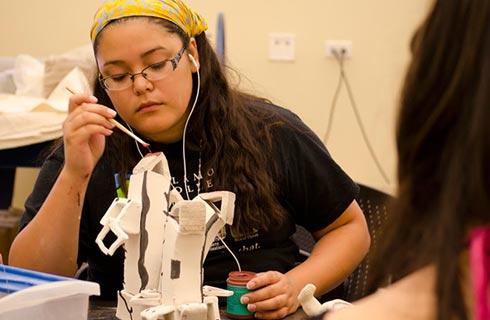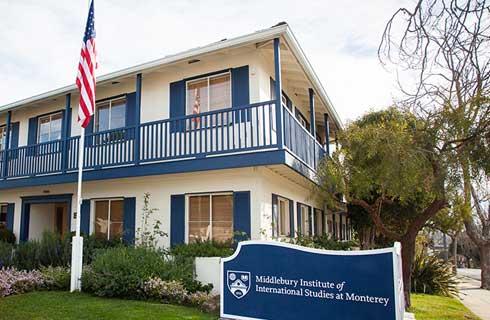国际学生入学条件
Bachelor's degree with 2:1 honours in science, medicine or dentistry. A 2:2 degree may be considered if the applicant also has a Master's degree with a merit or distinction. Relevant experience may also be acceptable. Students can demonstrate their English Language Proficiency with any of the following tests and grades: IELTS (Academic): 6.5 overall with a minimum of 6.0 in each skill; TOEFL IBT: 92 overall, with a minimum 23 in each skill.
展开
IDP—雅思考试联合主办方

雅思考试总分
6.5
- 雅思总分:6.5
- 托福网考总分:92
- 托福笔试总分:160
- 其他语言考试:Pearson Test of English (Academic) 62 overall with a minimum of 59 in each communicative skill
CRICOS代码:
申请截止日期: 请与IDP联系 以获取详细信息。
课程简介
The Wolfson Centre for Age-Related Diseases (WCARD) is part of the Division of Neuroscience within the Institute of Psychiatry, Psychology and Neuroscience (IoPPN). Research in the WCARD focuses on the maintenance of a healthy nervous system during aging, by understanding how its activity changes during damage to nerves and the surrounding tissues, and investigating new techniques to repair damaged neurons. Our long-term goal is to improve the quality of life of patients affected by lifelong and age-related diseases of the nervous system. Our research is geared towards i) understanding physiological and molecular mechanisms that drive disease conditions and ii) harness our scientific knowledge to develop new therapeutic strategies to restore normal sensory function and to better repair injury.Currently, our 4 major research themes are:1). Chronic Pain: Delineating new pathways and mechanisms of chronic pain to allow us to identify innovative targets in neurons and non-neuronal cell.2). Regeneration: Aiming to restore function after CNS injury by developing regenerative therapies that target the ongoing inflammation and glial scar to facilitate endogenous repair mechanisms.3). Hearing: Studying the genetics of age-related hearing loss in humans and mice to understand the pathological mechanisms that drive this process.4). Migraine: Delineating the underlying mechanisms and novel therapeutic targets for migraine and related primary headache disorders from bench to bedside and back.Researchers in all 4 themes are actively seeking PhD students to join their projects.We specialise in using electrophysiology and imaging techniques (e.g. patch-clamp; fMRImicro-PET; genetic indicators of neuronal activity; in situ hybridization; in-vivo electrophysiology) with sequencing and bioinformatics (e.g. RNAseq, microarray, machine learning) on translational models of human disease (e.g. neuropathic pain, migraine, stroke, spinal cord injury, Multiple Sclerosis, Alzheimer’s disease, Parkinson’s disease, diabetes, arthritis, fibromyalgia) to better understand disease processes. The results of these studies then inform a drug discovery process to develop innovative therapeutics.Key benefitsInteraction with internationally renowned neuroscience researchers both within the WCARD and as presenters at our research seminars.Friendly and collaborative research environmentPartnerships with hospitals, industrial collaborators and other research centresPhD students have the opportunity to develop their research skills in the WCARD, and also have access to transferable skills training through the KCL Centre for Doctoral StudiesWe encourage our PhD students to develop their education skills through involvement in tutorials and laboratory demonstrations for undergraduate and taught post-graduate students in the departments of Biochemistry, Neuroscience, Pharmacology and PhysiologyOver the last two decades, there have been tremendous advances in our understanding of the molecules and principles that govern the functioning of the nervous system. Great progress has been made to understand the molecular basis of disease states and pain, and the molecular mechanisms that limit regeneration. These advances enable innovative neuroscience and the opportunity to translate new knowledge into clinical benefitsOur mission is to:Further understand the causes of chronic pain, including migraine, identify new drug targets, develop treatments and monitor outcomes.Study neuronal receptors and neuronal signalling mechanisms to promote symptomatic relief from the pain and dysfunction associated with a damaged nervous system.Develop and test strategies aimed at restoring function to the damaged nervous system by promoting cell survival and resolution of inflammation.
展开







 预科
预科 奖学金
奖学金 实习机会
实习机会 在校学习
在校学习 跨境学习
跨境学习 校园授课-线上开始
校园授课-线上开始 在线/远程学习
在线/远程学习














 澳大利亚国立大学
澳大利亚国立大学

 澳大利亚国立大学
澳大利亚国立大学

 纽卡斯尔大学
纽卡斯尔大学

 斯威本科技大学
斯威本科技大学

 乐卓博大学
乐卓博大学

 南十字星大学
南十字星大学









 英国
英国